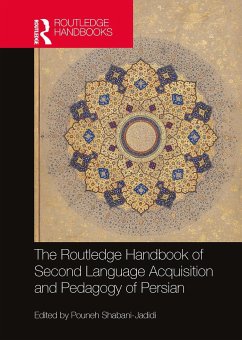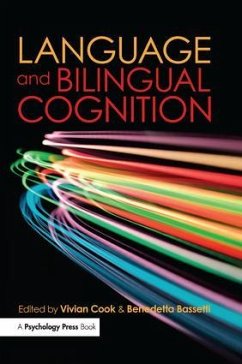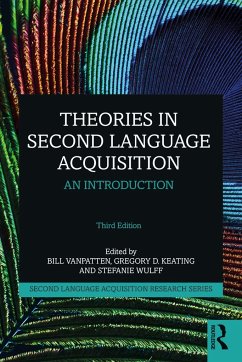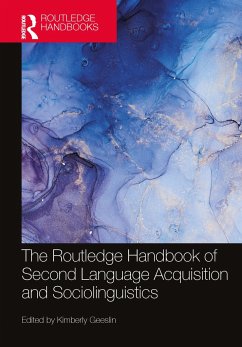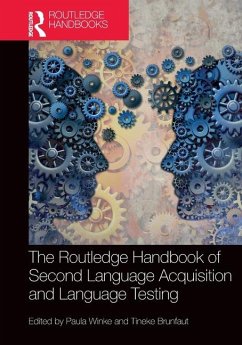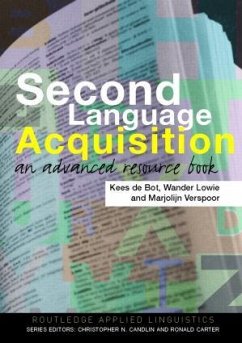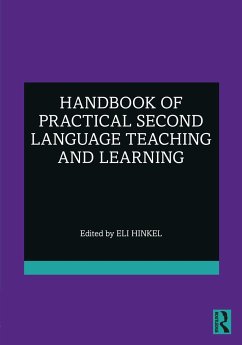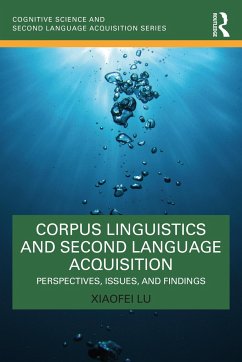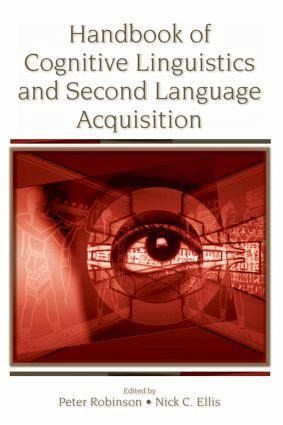
Handbook of Cognitive Linguistics and Second Language Acquisition
Versandkostenfrei!
Versandfertig in 6-10 Tagen
96,99 €
inkl. MwSt.
Weitere Ausgaben:

PAYBACK Punkte
48 °P sammeln!
This cutting-edge volume describes the implications of Cognitive Linguistics for the study of second language acquisition (SLA). The first two sections identify theoretical and empirical strands of Cognitive Linguistics, presenting them as a coherent whole. The third section discusses the relevance of Cognitive Linguistics to SLA and defines a research agenda linking these fields with implications for language instruction. Its comprehensive range and tutorial-style chapters make this handbook a valuable resource for students and researchers alike.





